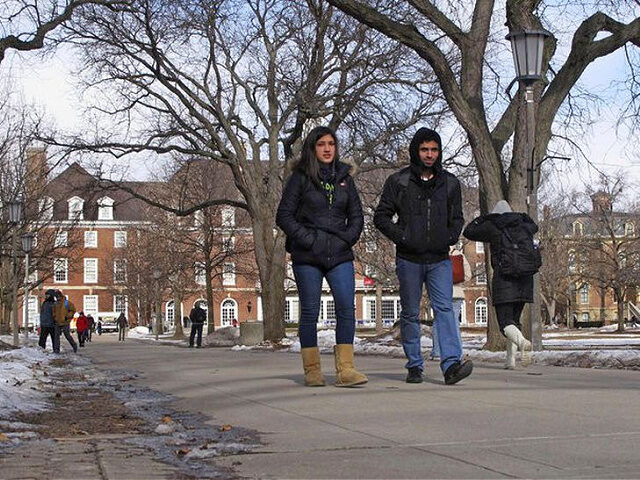The University of Illinois Urbana-Champaign has put almost $1.5 million towards research projects on racism and social injustice.
The university’s “Call to Action to Address Racism and Social Injustice,” which was first announced in July 2020, is an annual commitment to spend up to $2 million to fund research projects on racism and injustice.
The university explains that the program is “a commitment by our university to put the need to address systemic racism and generationally embedded racial disparity into concrete action.”
An October 2022 symposium for the program featured a keynote speech from Critical Race Theorist Ibram X. Kendi, who infamously claimed “The only remedy to racist discrimination is antiracist discrimination. The only remedy to past discrimination is present discrimination.”
Meanwhile, a list of currently funded projects for the 2022 – 2023 school year documents the specific studies and projects that are receiving monetary support from the university. They focus on topics like “systemic racism and social justice,” as well as “law enforcement and criminal justice reform.”
One project focused on “Building a Race and Immigration Dialog on Global Exclusions … to Recognize and Redress the Racial Structures in Immigration Policies and Processes.” The project, which was awarded $75,000, intends to “uncover possible pathways towards creating and sustaining local antiracist immigrant communities.”
The description also explains “We use social justice pedagogies including participatory storytelling, mapping, archiving, and arts-based public engagements to unveil concealed stories of resistance against resurgent racial profiling of Latino residents, anti-Asian violence, and other manifestations of anti-Black racism.”
“We will engage a broader community of antiracist allies at a concluding art-based public dialog circle,” the description concludes.
There’s also “Social Movements as Curriculum in Schools,” which received $24,412 in funding. The university’s College of Education worked alongside the El Griot and Areito Project, which the description explains is “an intergenerational Chicago grassroots organization that creates spaces and experiences using Caribeño stories of liberation, resistance, and joy.”
The project “seeks to explore ways that 6th-12th grade teachers transform social movements of the past into pedagogy and curriculum for their students,” the description also reads.
Another project was called “Establishing a Community-Based Curriculum Materials Collaborative for Health Justice Science Education,” which was granted $25,000. The project seeks to “establish a Collaborative that will ultimately work toward adapting K-12 science curriculum materials to focus on health justice issues relevant to communities in Champaign County.”
“A key limitation of most science curricula is that the experiences and science knowledge centered tend to be those of dominant (white, middle-class) groups” it went on to say before adding, “Thus, status-quo science education does not address the interests or needs of systematically marginalized communities or support students in taking action toward change.”
There’s also “Supergraphic Landscapes: Spatializing American Blackness,” which received $75,000. The project, which focuses on street murals that were created in the wake of the 2020 Black Lives Matter riots and protests, “takes a critical race design approach: racism is a system, and systems are imagined, designed, and executed.”
The description continues, saying, “Therefore, graphics, designed objects, street landscapes, and built things manifest underlying societal structures that might be redesigned.”
The project has three phases, the first of which is to conduct “Community-based research in South Chicago and North Lawndale interrogating the spatialization of race and racism.”
Next, participants will “Co-Design Workshops engaging community members to design creative placemaking prototypes that combat space-based racism and celebrate identity” before then “Disseminating a design toolkit empowering other communities.”
One project, which was funded to the tune of $74,345, is called “Minoritarian Aesthetics.” “Minoritarian Aesthetics is a two-part critical engagement project. It values minoritarian practices and community involvement in art as a critical lens to examine and manage the complex worlds we communally navigate,” the description reads.
It goes on to say, “This interdisciplinary and intersectional project centers the voices of underrepresented groups – Women, Queer, Disabled, and People of Color – with certainty that the “voice in minor” is, in fact, instrumental to local, regional, national, transnational, cultural, and intellectual practices.”
Another project, called “The Use of Social Capital by School Leaders of Color: Peer Networks for Attaining Racial Equity and Justice,” was awarded $25,000. “Communities of color have historically used community cultural wealth … to improve the educational outcomes for students and communities of color,” the description reads.
It adds, “the research will explore this phenomenon with appropriate complexity and contextualize emergent theory about how school leaders of color navigate and interpret their practice toward equity,” before also explaining, “The aim is to understand how school leaders of color establish and use informal peer networks and how they use such networks for equity.”
Spencer Lindquist is a reporter for Breitbart News. Follow him on Twitter @SpencerLndqst and reach out at slindquist@breitbart.com.

COMMENTS
Please let us know if you're having issues with commenting.